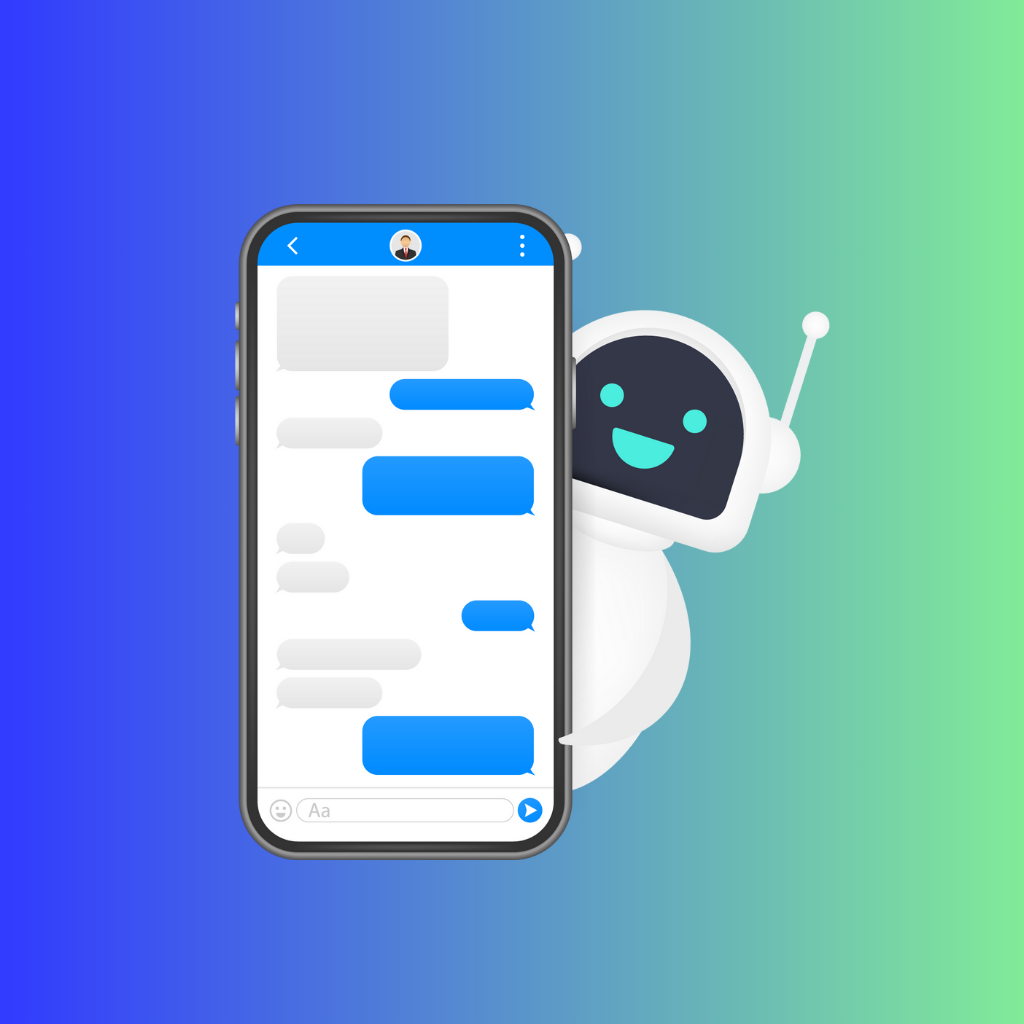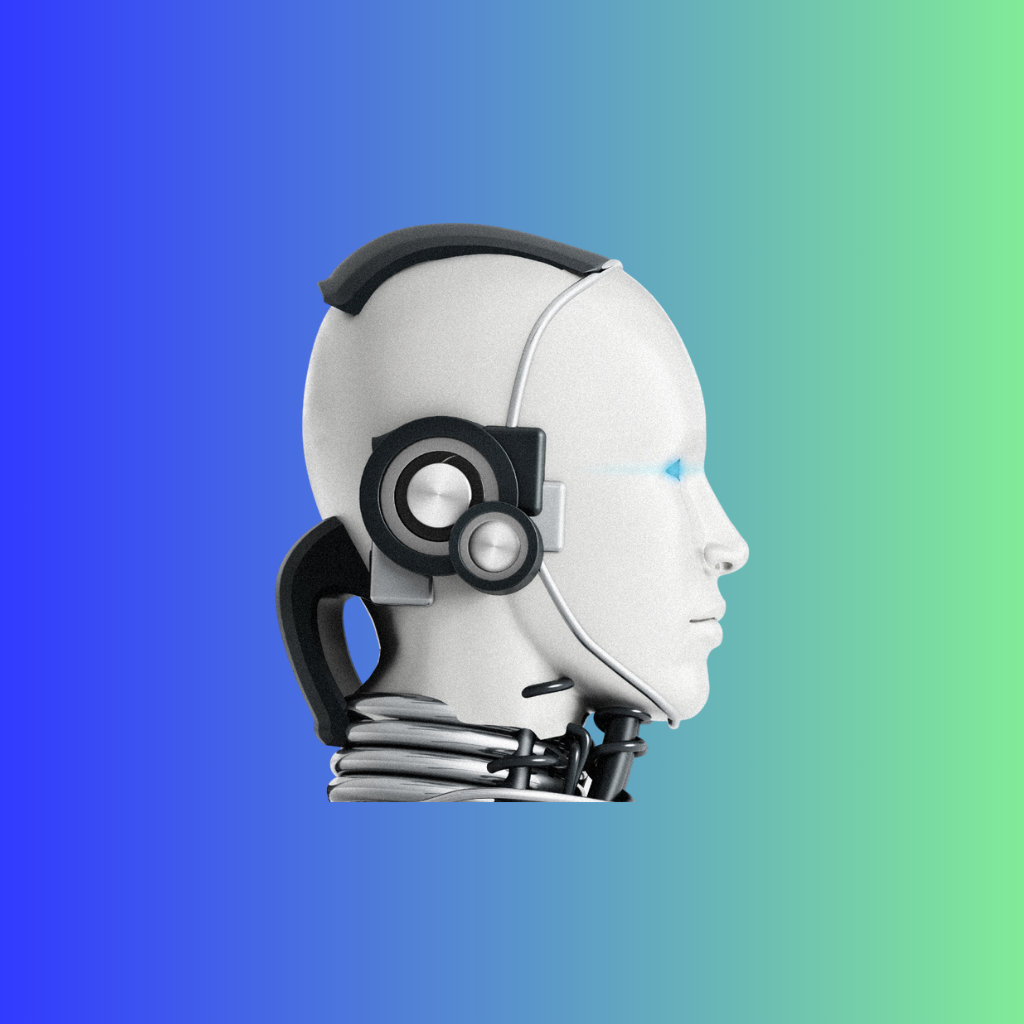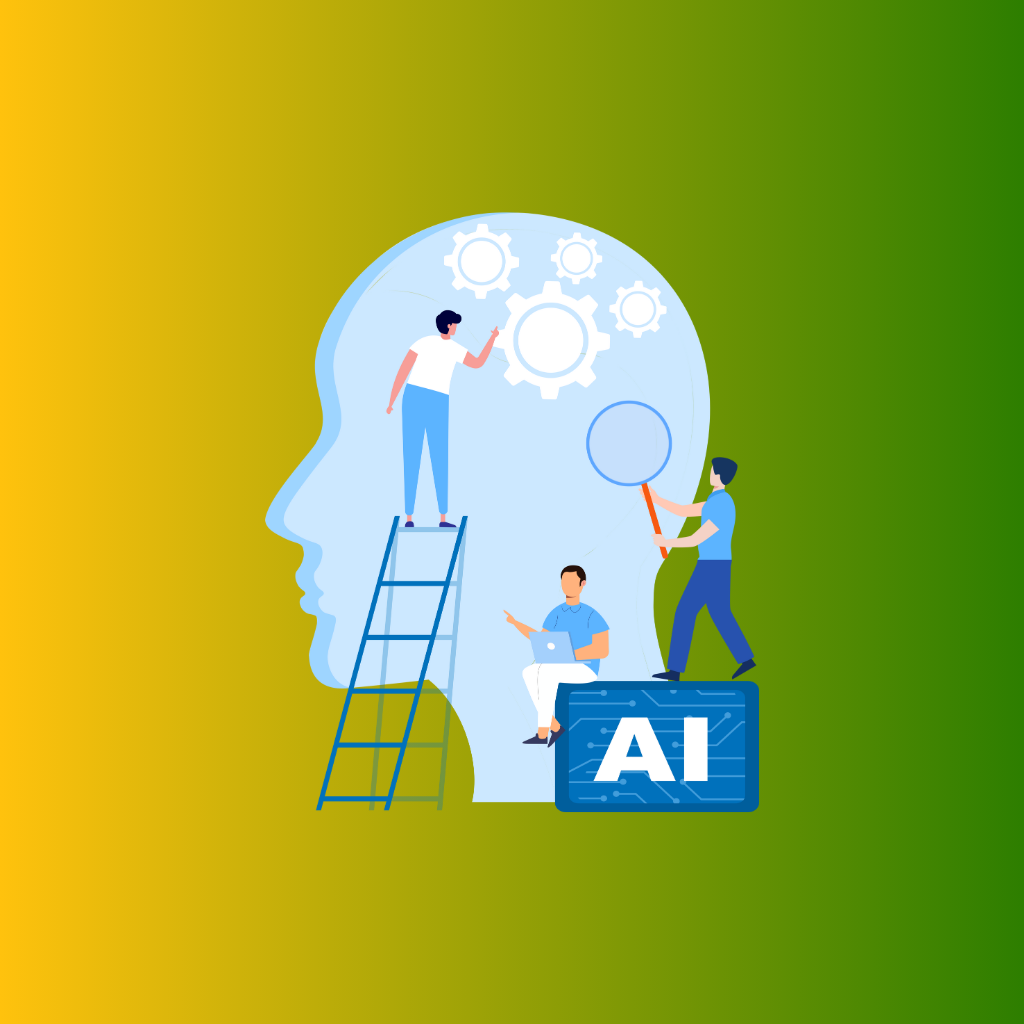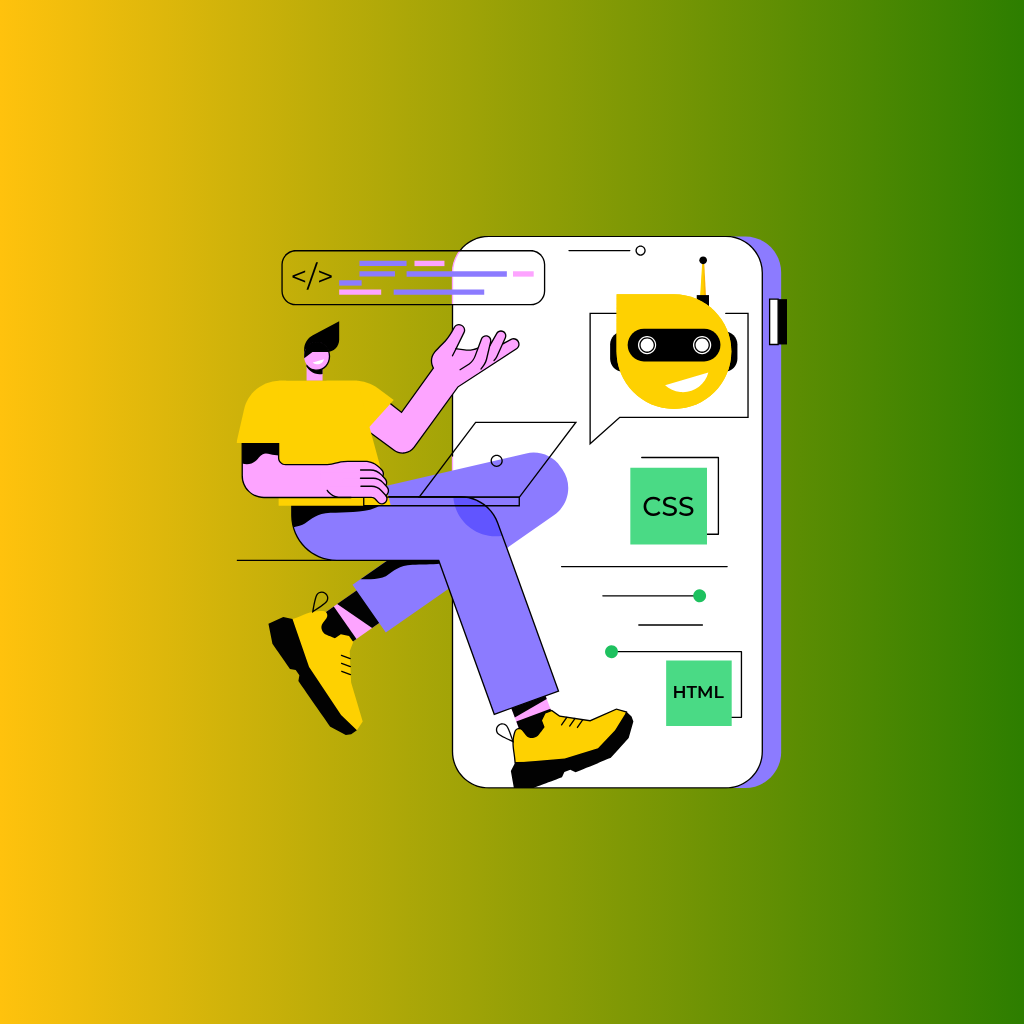In the fast-evolving world of mobile app development, Artificial Intelligence (AI) has emerged as a game-changer. Initially seen as a futuristic concept, AI is now a fundamental part of creating engaging and highly functional mobile applications. Its role extends beyond mere automation, breathing life into apps to make them more intuitive and personalized for users.
At the heart of AI's appeal is its ability to enhance the user experience significantly. From personalized content recommendations to voice recognition features, AI technologies are making mobile apps smarter and more user-friendly. But it's not just about improving functionality; AI is also revolutionizing how apps are developed, maintained, and updated, streamlining processes, reducing costs, and driving efficiency.
As we delve into the world of AI in mobile app development, it's clear that its impact is profound and far-reaching. For businesses and developers alike, understanding and leveraging AI technologies can lead to more competitive and innovative mobile solutions. This blog post aims to explore the evolution of AI in mobile apps, its transformative impact on the industry, and the challenges and considerations for the future, emphasizing the importance of embracing AI in the journey of app development.
I. The Evolution of AI in Mobile Apps
The journey of Artificial Intelligence (AI) in the realm of mobile applications is nothing short of remarkable. From its nascent stages, where AI was a novel concept limited to high-budget projects, to its current status as a cornerstone of app development, the evolution has been rapid and transformative. This section explores the inception of AI in mobile apps, highlights key milestones, and examines how AI has revolutionized user interaction with mobile devices.
The Inception of AI in Mobile Apps
The integration of AI into mobile apps began as an attempt to make devices more than just tools for communication. Early adopters aimed to create smarter, more interactive experiences, laying the groundwork for the sophisticated AI features we see today. Initial applications were simple, such as basic speech recognition and predictive text functionalities, but they set the stage for more advanced implementations.
Key Milestones in AI Integration
Over the years, several milestones have marked the evolution of AI in app development. One of the first significant breakthroughs was the introduction of personal assistant applications, like Siri and Google Assistant, which leveraged AI to understand and respond to natural language queries. Following this, AI began to enhance user experiences through features like facial recognition, personalized recommendations, and augmented reality, each becoming more sophisticated with advancements in AI technology.
Another milestone was the adoption of machine learning algorithms, enabling apps to learn from user interactions and improve over time without explicit programming. This breakthrough has led to the development of highly personalized and dynamic user experiences.
Transformation of User Interaction with Mobile Devices
AI has fundamentally changed how users interact with their mobile devices. Gone are the days when interactions were limited to typing and tapping. Now, users can speak, gesture, and even look at their devices to communicate with them. This shift has made mobile apps more accessible and intuitive, catering to a broader range of user needs and preferences.
Moreover, AI-powered apps are capable of understanding user behavior, preferences, and patterns, offering personalized content and recommendations. This not only enhances the user experience but also fosters a deeper connection between the user and the app. The ability of AI to process and analyze vast amounts of data in real-time has enabled mobile devices to become true personal assistants, anticipating user needs and providing solutions before they are explicitly requested.
The evolution of AI in mobile apps represents a leap towards more intelligent, user-centered technology. By harnessing the power of AI, developers have unlocked new potentials in app functionality and user engagement, setting the stage for a future where mobile apps are more integrated into our daily lives than ever before.
II. The Impact of AI on App Development and Businesses
The integration of Artificial Intelligence (AI) into mobile app development has ushered in a new era of efficiency, personalization, and user engagement. This technological advancement has not only streamlined the app development process but has also had a profound impact on businesses by reducing costs, enhancing app maintenance, and driving user engagement to unprecedented levels. Let's delve into how AI is redefining the landscape of app development and its ripple effects on businesses.
Streamlining App Development Processes with AI Tools
AI tools and technologies are revolutionizing the way mobile apps are developed. By automating routine and complex tasks, AI enables developers to focus on more strategic aspects of app development, such as design and user experience. For instance, AI-powered coding assistants can suggest code improvements, detect bugs early in the development cycle, and even write code snippets, significantly speeding up the development process. Furthermore, AI-driven testing tools automate the testing process, ensuring apps are robust and bug-free, reducing the time and resources spent on manual testing.
Cost Reduction and Increased Efficiency in App Maintenance and Updates
One of the most significant advantages of incorporating AI into app development is the reduction in maintenance costs and the increase in operational efficiency. AI algorithms can predict app failures and identify areas that require updates, allowing developers to proactively address issues before they affect users. This predictive maintenance not only enhances the app's performance but also extends its lifespan, resulting in cost savings for businesses. Moreover, AI can analyze user feedback and behavior to recommend specific updates and features, ensuring that the app remains relevant and continues to meet user needs effectively.
Driving User Engagement and Retention Through Smarter Apps
AI has the power to transform apps from static tools into dynamic, engaging platforms that anticipate and adapt to user preferences. Personalized content recommendations, intelligent chatbots, and interactive AI features make apps more engaging, significantly enhancing the user experience. This level of personalization ensures that users are not just satisfied but delighted with their app experiences, leading to higher engagement rates and, ultimately, increased user retention. For businesses, this translates into a loyal user base, better app ratings, and increased revenue opportunities.
Moreover, AI-enabled apps can leverage real-time data analysis to offer timely and relevant interactions, making each user feel understood and valued. This capability is particularly beneficial for e-commerce and media apps, where personalization can directly influence buying behavior and content consumption.
The impact of AI on app development and businesses is profound and multifaceted. By streamlining development processes, reducing operational costs, and driving user engagement, AI is setting a new standard for what mobile apps can achieve. As businesses continue to embrace AI in app development, we can expect to see even more innovative and user-centric mobile solutions emerging, reshaping the digital landscape and offering users experiences that were once thought to be the stuff of science fiction.
III. Challenges and Considerations for the Future
While the integration of Artificial Intelligence (AI) in mobile app development offers a plethora of opportunities for innovation and efficiency, it also presents several challenges and considerations. These range from ethical dilemmas and privacy concerns to technical hurdles that need to be addressed to ensure the sustainable and responsible growth of AI in this space. Let’s explore some of these challenges and considerations that businesses and developers must navigate in the future.
Balancing Innovation with User Privacy and Data Protection
One of the most significant challenges in the widespread adoption of AI in mobile apps is ensuring user privacy and data protection. AI systems require vast amounts of data to learn and improve, raising concerns about how this data is collected, used, and stored. Businesses must balance the drive for innovative, AI-driven app functionalities with the imperative to protect user privacy. Adhering to strict data protection regulations, such as GDPR in Europe, and being transparent with users about data usage are critical steps in building trust and ensuring ethical AI practices.
The Need for Robust AI Governance and Ethical Standards
As AI becomes more integral to app development, the need for robust governance structures and ethical standards becomes increasingly important. Establishing guidelines for the responsible use of AI can help prevent biases in AI algorithms that could lead to unfair or discriminatory outcomes. Furthermore, ethical standards can guide the development of AI systems that respect human rights and values, ensuring that AI serves the interests of all users equitably. Businesses and developers have a crucial role in advocating for and implementing these governance and ethical frameworks.
Overcoming Technical and Infrastructural Barriers to AI Adoption in Apps
Technical and infrastructural barriers also pose significant challenges to the integration of AI in mobile apps. Developing sophisticated AI algorithms requires specialized skills and resources, which may not be readily available to all businesses, especially small and medium-sized enterprises. Additionally, deploying AI solutions can demand substantial computational power and data storage capacity, necessitating investments in infrastructure that may not be feasible for every company. Overcoming these barriers requires strategic planning, potentially including partnerships with AI technology providers and investing in cloud-based AI solutions to leverage their computational resources and scalability.
Future Considerations
Looking ahead, it’s clear that AI will continue to play a pivotal role in mobile app development. However, for this potential to be fully realized, the industry must address the aforementioned challenges head-on. This includes investing in education and training to build AI expertise, fostering collaboration between businesses, developers, and regulatory bodies to establish ethical guidelines, and exploring innovative solutions to reduce the technical and infrastructural demands of AI adoption.
The future of AI in mobile apps is bright, but it is contingent upon our collective ability to navigate these complex challenges responsibly. By doing so, we can ensure that AI continues to enhance mobile apps in ways that benefit businesses and users alike, driving forward a future where technology serves humanity more effectively and ethically.
In conclusion, the journey of Artificial Intelligence (AI) in the realm of mobile app development is a testament to the incredible potential of technology to enhance, streamline, and innovate the way we interact with digital platforms. From its early inception to becoming a cornerstone of modern app design, AI has transformed mobile applications into dynamic, intelligent tools that not only meet but anticipate user needs. The evolution of AI within this space has not only improved user experiences but has also presented businesses with new avenues for efficiency, engagement, and growth.
However, the path forward is not without its challenges. As we've explored, issues such as user privacy, data protection, ethical AI use, and technical barriers present hurdles that need careful navigation. The future of AI in mobile apps will heavily depend on how the tech community, businesses, and regulators work together to address these concerns, ensuring that innovation does not come at the expense of ethical standards or user trust.
The potential of AI to shape the future of mobile app development is undeniable. It offers a promise of apps that are more intuitive, personalized, and capable of providing unparalleled user experiences. Yet, embracing AI also requires a commitment to responsible development practices, ensuring that as we push the boundaries of what apps can do, we also safeguard the values and rights of the users they serve.
For businesses and developers alike, the message is clear: AI presents a remarkable opportunity to differentiate and excel in a competitive landscape. By investing in AI technologies, prioritizing ethical considerations, and focusing on user-centric design, the potential to create truly transformative mobile applications is within reach. As we look to the future, it's an exciting time to be at the intersection of AI and mobile app development, where the possibilities are as limitless as our collective imagination and commitment to progress responsibly.








